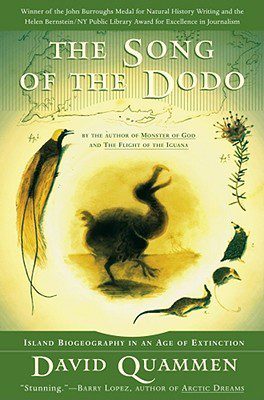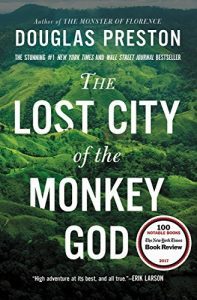Title: The Song of the Dodo: Island Biogeography in an Age of Extinction
Author: David Quammen
First published August 15, 1996
702 pages, Paperback
ISBN: 9780684827124 (ISBN10: 0684827123)
Rating: 4.28
Overview
Praised as a masterpiece of science journalism, The Song of the Dodo is an eye-opening work that explores the mysteries of evolution and extinction. With personal observations, scientific theories, and historical accounts, David Quammen takes readers on a journey to discover the wonders of isolated ecosystems, such as the dragons of Komodo and the giant tortoises of the Galapagos.
However, Quammen also sheds light on the dark side of island studies and how human activity is threatening these fragile ecosystems. Through a fascinating account of an eight-year journey of discovery, The Song of the Dodo is a wake-up call for our time and an urgent reminder of our place within the natural world.
With breathtaking scope and a powerful message, this book is an unforgettable adventure that will leave readers with a newfound appreciation for the planet we call home.
About the Author
Meet David Quammen, a talented writer who has won numerous awards for his work in science, nature, and travel writing. You may have read his pieces in National Geographic, Harper’s, Rolling Stone, or The New York Times Book Review.
He’s even dabbled in fiction! For a whopping fifteen years, Quammen wrote a popular column titled “Natural Acts” for Outside magazine. When he’s not busy writing, he calls Bozeman, Montana his home sweet home.
Editoral Review
David Quammen’s The Song of the Dodo: Island Biogeography in an Age of Extinction is a landmark work of science writing that explores the complex relationships between species, geography, and human activity. Published on August 15, 1996, the book delves deep into the science of biogeography, examining how the isolation of islands has generated unique ecosystems and shaped the evolution of countless species.
However, Quammen’s book also focuses on the ongoing threat to these ecosystems, as human activity continues to encroach on fragile habitats and drive species to extinction. Quammen is a celebrated science writer and journalist, and his passion for the natural world shines through in The Song of the Dodo.
He draws on a wealth of scientific research to explain the concepts of island biogeography, presenting them in an accessible and engaging way that will captivate both lay readers and experts alike. This book is an exemplar of the genre, seamlessly blending scientific rigor with vivid storytelling and lyrical prose.
The Song of the Dodo is divided into three parts, each exploring a different aspect of island biogeography. Part One provides an introduction to the science, exploring the key concepts of colonization, isolation, and extinction that define the field.
Part Two takes a closer look at several case studies, from the Galapagos Islands to the Krakatau archipelago, analyzing how unique ecosystems have evolved in each of these isolated environments. Part Three brings these threads together, examining the broader implications of island biogeography for conservation and environmental policy.
One of the strengths of Quammen’s book is the way in which he interweaves science with personal anecdotes and historical context. The Song of the Dodo is not just a dry scientific treatise; it is also a rich tapestry of human stories, exploring the experiences of Darwin, Wallace, and other pioneering naturalists who laid the foundation for modern biogeography.
Quammen also speaks to contemporary scientists who are conducting cutting-edge research on the topic, guiding readers on a fascinating journey through the intellectual history of the field. At its core, The Song of the Dodo is a plea for conservation and environmental stewardship.
Quammen makes a compelling case for protecting the delicate ecosystems of islands and other isolated environments, highlighting the devastating impact that human activity can have on these environments. However, he is also careful to acknowledge the complexity of the issue, exploring the tension between conservation and economic development, and presenting a nuanced view of the challenges that face policymakers and activists alike.
Overall, The Song of the Dodo is an outstanding work of science writing. Quammen’s prose is both lyrical and precise, capturing the wonder of the natural world while also conveying the weight of the scientific evidence.
The book is meticulously researched and carefully argued, providing readers with a comprehensive understanding of the scientific concepts and the environmental issues that underpin the study of biogeography. Highly recommended for anyone interested in science, conservation, or the natural world.
Rating: 4.5/5 stars.



